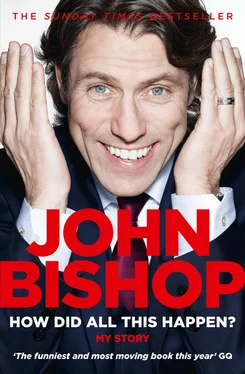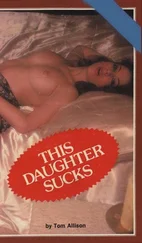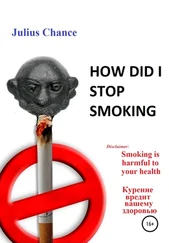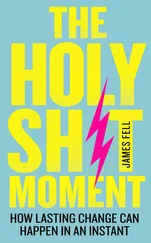I have to say that the town planners of our estate did a brilliant job in setting out the rows of houses in such a way that you were never more than ten steps away from grass. Every house had a back yard and a front garden, and then beyond that there would be grass. I know that ‘grass’ is a very incomplete description, but that is basically what it was. You either had enough grass to host a football match, an area big enough for a bonfire on Guy Fawkes or any other night you felt like building a fire, or you just had enough grass for your dog to have a dump on when you let it out.
As a child, I don’t recall the concept of poop-scooping existing, and I can’t imagine anything more at odds with the world that I lived in than the image of a grown adult picking up dog shit. Dog ownership involved feeding the animal and giving it somewhere to sleep. Beyond that, nobody expected anything else. Nobody took their dog for a walk – you simply opened the door and let it out. The dog would then do whatever dogs do when left to their own devices, and it would come home when it was ready. The only dogs that had leads when I was a child worked for the police or helped blind people cross the road.
I am not suggesting that we were bad dog owners; in fact, I think the dogs were having a brilliant time, although you only have to slide into dog shit once as a child playing football before you think someone, somewhere should do something. I recall being asked to do a school project about improving the community and I suggested that dog dirt was a real problem. The teacher agreed and asked me what I would suggest to improve the matter. After some thought, I came up with the idea of the dog nappy. The teacher tried to seem impressed and not laugh, but sadly the idea never caught on – as there was no Dragons’ Den in the seventies where my eight-year-old self could have pitched the idea, it became no more than a few pages in my school book. And, instead, picking it up using a plastic shopping bag has become the norm. However, I challenge anyone who has to pick up dog shit first thing in the morning not to think the nappy idea has some legs.
Most of what I remember of my childhood happened outdoors. All we ever did was go out and play, and mums would stand on their steps shouting for us when our tea was ready. I should explain to people not from the North, or who may be too wealthy to understand what I mean by the word ‘tea’, that I am referring to the evening meal, which you call dinner, which is what we call the meal in the middle of the day, which you call lunch. It is important we clear this up, as I would not want you to think I am using ‘tea’ in the cricket sense, and that after a few hours’ play we retired for a beverage and a slice of cake. Instead, the call for tea was an important signal to let you know the main meal of the day was ready. The shout was not something to be ignored, or your portion of scouse (stew) or corned beef hash would end up in one of the other children in the family. Or the dog.
But if you didn’t hear it, someone on the estate would let you know. It is a great illustration of the sense of community we had that all communication was communal. If a mum shouted that her child’s tea was ready, all the other children would pass it on until that particular offspring was located and dispatched home. It was also a great way of getting rid of someone you didn’t like, but while kids can be cruel they can also be stupid. The estate wasn’t that big and everyone knew all the favourite hang-out spots, so when the now-hungry child returned to the gang you had to remember to blame the prank on whichever other kid had gone home for his tea.
I learnt what the place meant to me in 2010 when I was doing my ‘Sunshine’ tour. I was in the dressing room of the Echo Arena in Liverpool, about to perform for the sixth night. The venue had just presented me with an award for the most tickets ever sold there for a single tour: apparently I beat Mamma Mia! by 15,000 tickets. I was having a coffee in the dressing room and chatting with Lisa, my agent, when Alex, my tour manager, said my brother Eddie wanted to have a chat.
When family come to shows, I always see them either before or in the interval, as often I find it easier to do that than at the end of a show. At the end of shows I prefer to be on the road quickly; there is something very exciting and rock ’n’ roll about walking off the stage and straight into a waiting car. Eddie walked in with a gift-wrapped long, thin object. After kissing Lisa hello, he turned to me.
‘Do you want a drink?’ I asked, pointing to the fully stocked fridge that rarely opened as I only drink coffee and water before a show.
‘No. I just wanted to give you this. But don’t open it till I’m gone.’
‘Don’t be daft, you’re there now. I’ll just open it.’
‘No, wait. You’ll see. I’ll see you after.’
With that he walked out, leaving Lisa and me in the room with the parcel. I didn’t know what to make of it, so looked at the message on it, which read:
‘ We are all very proud of you, but something so you don’t forget where you are from. ’
I looked at it for a moment before Lisa broke into my thoughts. ‘Do you want me to leave whilst you open it?’
‘Don’t be daft,’ I replied. ‘It’s the wrong shape for a blow-up doll, so there can’t be anything embarrassing about it.’
I tore back the paper and realised why Eddie hadn’t wanted to be there when I opened it as a lump climbed into my throat.
‘What is it?’ asked Lisa, concerned that I was supposed to go and perform in front of 10,000 people but looked like I was about to start blubbering over the parcel contents.
‘It’s who I am,’ I said, and showed her the street sign for Severn Walk, which Eddie had nicked from the end of the block.
When I revisited the street to get my bearings for this book, it was nice to see a block of houses built in the sixties with a brand-new street sign. The old one now hangs in my kitchen, in pride of place. You can’t return to your childhood, but you don’t have to leave it, either.
Football was the game of choice for all the boys on the estate. In the seventies, girls did things that involved skipping whilst singing songs, hopscotch on a course drawn in chalk on the pavement, Morris dancing with pom-poms, and being in the kitchen. I am sure my sisters Kathy and Carol did loads of other things, but if they did I never saw them. I was a boy, and boys played football and scrapped. Later, when I was given a second-hand Chopper from my uncle, Stephen, I added trying to be Evel Knievel to my list of activities. Along with the Six Million Dollar Man, Steve Austin, Evel was my first non-footballer hero – quite unusual choices, as one had bionic legs, and the other one was always trying his best to get some by crashing all the time. If you do not know either of the gentlemen to whom I just referred, then you missed out in the seventies, when a man worth $6 million was much more impressive than a person worth the same amount now, i.e. someone playing left back in League One. And, back then, the absence of YouTube meant that seeing a man crash his motorbike whilst trying jump over a queue of buses was classed as global entertainment. It basically meant that, during my childhood, I was attracted to taking risks by crashing my bike after jumping over ramps or jumping off things. Most of the time this was OK, but it did also inadvertently lead to my first discovery that I could make people laugh, more of which later.
Having an older brother who occasionally let me play football with him and his mates meant that when I played with my own age group I was a decent player, and, like any child who finds they are good at anything, I wanted to keep doing it. In terms of sport, this single-minded approach explains why I am rubbish at everything else: I didn’t do anything else. There was the odd game of tennis if we could sneak onto the courts at the park without the attendant charging us, but it seemed a daft idea to play anything else when all you needed for football was a ball and some space – ideally, a space away from house windows and dog shit but, if not, you could play around that. That is one of the great things about being a boy: you can find something you enjoy like football and you don’t have to stop playing it as you grow up. I played it continually for years, and I still play it occasionally now. I haven’t seen either of my sisters play hopscotch since I was 10.
Читать дальше











